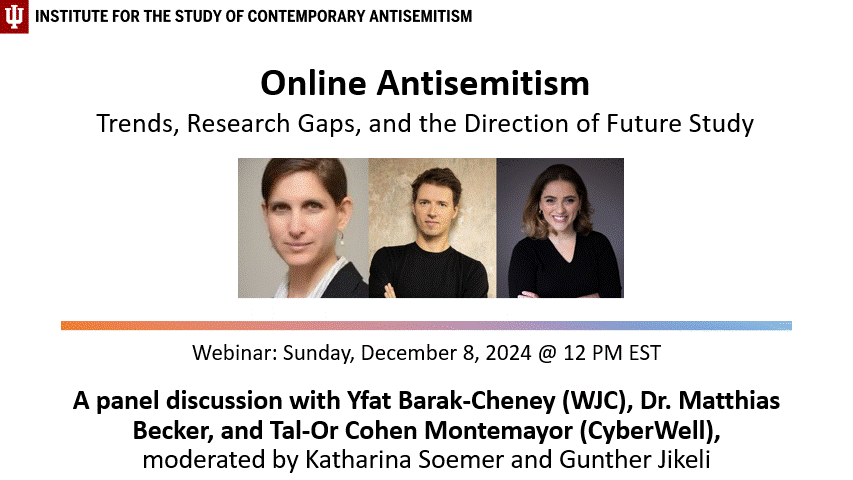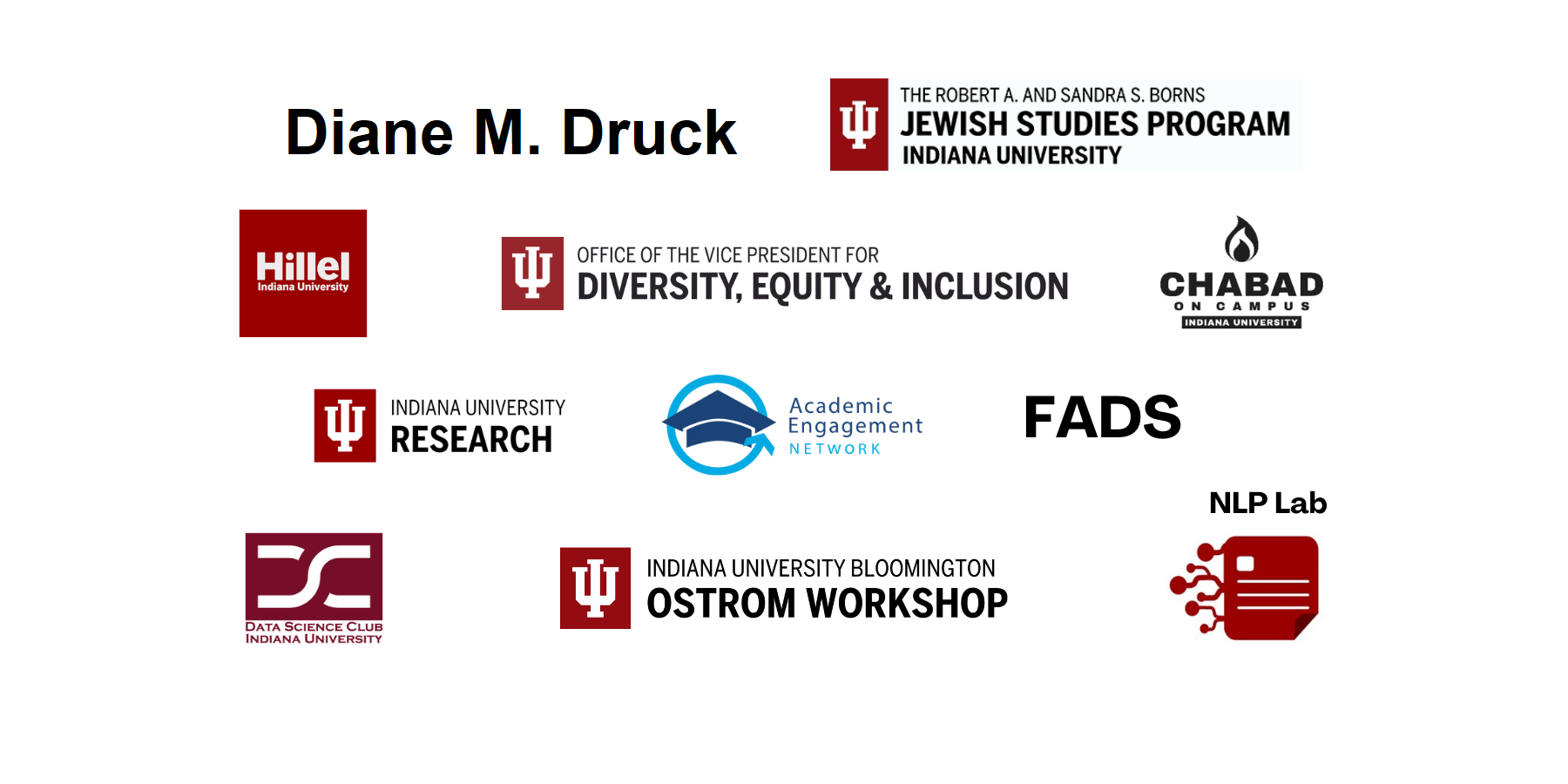Looking to apply for the 2025 Datathon and Machine Learning Competition to Combat Antisemitism?
2024 Datathon & Machine Learning Competition
ANNOUNCING THE WINNERS OF THE 2024 DATATHON & MACHINE LEARNING COMPETITION:
This year's winner is Team 4 (Team Four against Hate: Daniella Abbott, Barisha Chowdhury, Chanelle Mizrahi, Ben Noyvert). They annotated by far the most tweets and approached the machine learning task with logistic regression. They did a great job in their documentation, showing that they familiarized themselves with the data and the phenomenon they were analyzing. They even chose to visualize some of their results.
Team 3 (Eitan Brochstein, Hunter Herschleb, Maya Nakar, Noah Roth) is awarded second place. They showed great effort in the machine learning challenge: they used gemma2 to classify tweets. Not only did they train a model, they also built a function that automates the annotation process in ISCA's annotation portal, an innovative approach.
Team 1 (Christine Chen, Mikey Mauch, Cohen Schulz, Matthew Widjaja) took third place, using logistic regression to classify tweets.
Special thanks to Trenton Reeves for help in evaluating this year's participant submissions.
Winners of the competition were honored on Sunday, December 8, 2024 at 12PM EST during the online webinar "Online Antisemitism: Trends, Research Gaps, and the Direction of Future Study" with guest speakers Yfat Barak-Cheney, Matthias Becker, and Tal-Or Cohen.

Workshop Dates:
- October 6, 2024 @ 12-2 pm ET: Online Antisemitism Before and After October 7.
- October 13, 2024 @ 12-2 pm ET: Manual Annotation: Why and How?
- October 20, 2024 @ 12-2 pm ET: Automated Content Detection: The Basics
Resources and Session Recordings:
IHRA Definition of Antisemitism
Workshop 1: Online Antisemitism Before and After October 7
Workshop 2: Mannual Annotation: Why and How?
Workshop 3: Antisemitism Detection in Social Media
Project Manager: Katharina Soemer ksoemer@iu.edu
Funded by:
Diane M. Druck
Academic Engagement Network
Borns Jewish Studies Program
IU Office of the Vice President for Diversity, Equity, and Inclusion
Ostrom Workshop - Program on Cybersecurity and Internet Governance
Supported by:
IU Data Science Club
IU Hillel
Chabad of Bloomington
Natural Language Processing Lab
Faculty Assistance in Data Science (FADS)
IU Research

This work used Jetstream2 at Indiana University through allocation HUM200003 from the Advanced Cyberinfrastructure Coordination Ecosystem: Services & Support (ACCESS) program, which is supported by National Science Foundation grants #2138259, #2138286, #2138307, #2137603, and #2138296.
 The College of Arts
The College of Arts